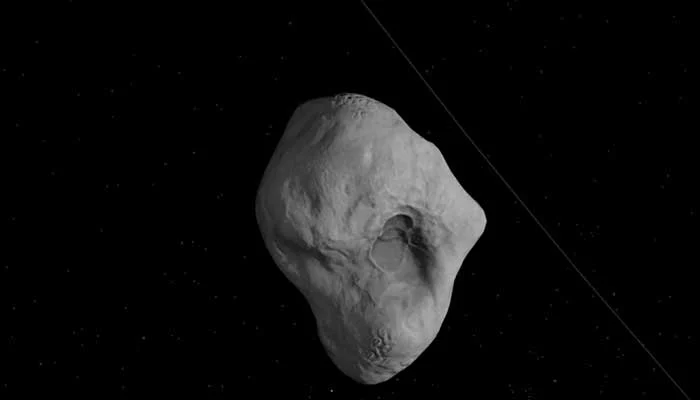A colossal asteroid, approximately the size of a small mountain, is set to pass by Earth this weekend. This thrilling celestial event has captured the attention of astronomers and sky enthusiasts worldwide, offering a rare chance to witness an asteroid up close.
The asteroid, identified as 2025 PT1, is estimated to be around 1,200 meters in diameter, making it one of the larger near-Earth objects (NEOs) in recent years. Despite its impressive size, the asteroid is not expected to pose any threat to our planet, with its closest approach scheduled for Saturday evening. However, the event provides a unique opportunity for scientific study and observation.
Astronomers have closely monitored the asteroid’s trajectory, ensuring it will pass safely at a distance of approximately 6.5 million kilometers from Earth. While this may sound far, it is relatively close in astronomical terms, allowing stargazers to spot the asteroid with the right equipment.
For those interested in observing this celestial phenomenon, the best time to view the asteroid will be during the late evening hours when the sky is darkest. Depending on your location, binoculars or small telescopes may be needed to spot the asteroid clearly. It will be visible to the naked eye only under the best conditions and with little light pollution.
NASA and other space agencies will also be tracking the asteroid’s movement, with live feeds available for viewers online. If you’re unable to spot the asteroid in person, these virtual observation opportunities can provide a front-row seat to this exciting event.
This asteroid’s close approach is part of a larger pattern of increasing interest in near-Earth objects. As more and more asteroids are discovered, scientists are keen to study their composition, behavior, and potential impact on Earth. The data gathered from events like this can help improve asteroid tracking technology and refine strategies for asteroid deflection in the future, should a threat ever arise
The passage of asteroid 2025 PT1 is another reminder of the dynamic and constantly evolving nature of our solar system. As space exploration continues to advance, events like these spark curiosity and wonder about the vast universe around us
While this weekend’s asteroid is not expected to be hazardous, its proximity to Earth offers a rare chance to explore the wonders of space. Whether you’re a seasoned astronomer or a casual observer, the opportunity to witness a mountain-sized asteroid as it passes by Earth is an experience not to be missed. Keep an eye on the night sky, and don’t forget to share your observations with friends and fellow space enthusiasts



Comments (0)
No comments yet. Be the first to comment!
Leave a Comment